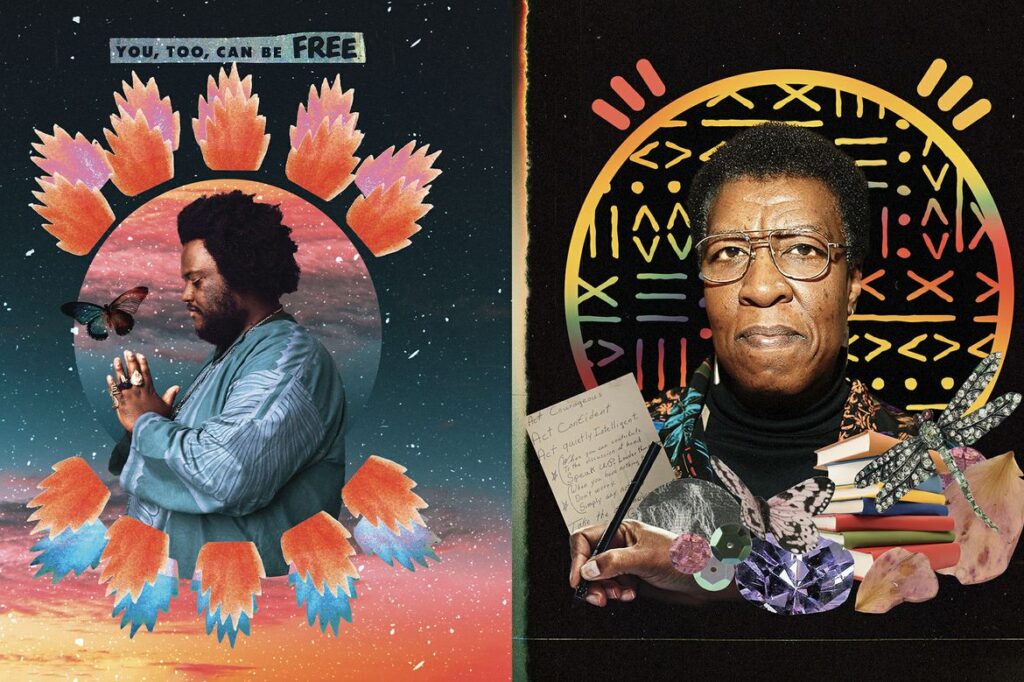Art and music are rich parts of Black culture. This year’s theme for Black History Month is “Rhythms of Resilience: One Soul, One Sound,” and that helps guide and amplify our celebration.
We can explore this concept through a lens that Black history, culture, and music embody a tapestry of diversity and interconnection, rather than being a single narrative. One compelling facet of this idea is the emergence of Afrofuturism – a genre that combines futuristic elements with African and African American culture. Afrofuturism allows artists to envision alternate realities, empowering them to reclaim their history and reimagine their future. Some artists in this space include:
- Janelle Monae, musician
- Sun Ra, musician
- Lina Iris Viktor, author
- Octavia Butler, author
- George Clinton, musician
- Parliament-Funkadelic, musician

Afrofuturistic music often features innovative sounds, cosmic themes, and exploration of alternative realities. In literature, Afrofuturism blends elements of science fiction and fantasy with African diasporic cultures. It’s a path to explore the past, present, and potential future of Black communities.
In essence, Afrofuturism within the African American arts represents a dynamic fusion of tradition and innovation. It serves as a vehicle for envisioning a future where the past is acknowledged, present realities are critiqued, and new possibilities are forged. Through literature, music, and visual arts, African Americans are not only shaping their cultural legacy but also reshaping every fabric of storytelling, inviting everyone to join in the exploration of Afrofuturist worlds where creatively knows no bounds.
Historically, our nation has recognized Black History since 1976. The precursor to this month of recognition was in 1926, when the Association for the Study of African American Life and History sponsored a national Negro History Week. They chose the second week of February to coincide with the birthdays of Abraham Lincoln and Frederick Douglass. As a result of the growing awareness of Black identity through the civil rights movement, Black educators and the Black United Students at Kent State University first proposed Black History Month in February 1969. One year later, the first celebration took place at Kent State from January 2 to February 28. In 1976, President Gerald Ford declared February as Black History Month. Today, Black History Month honors the contributions and legacy of Black and African Americans across U.S. history and society.
You can learn more about Black History Month here.


